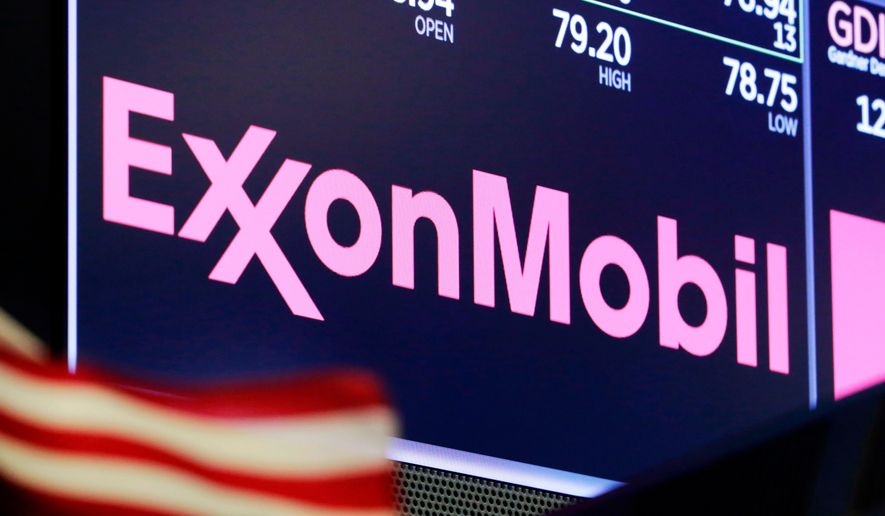A New York State Supreme Court justice ruled Tuesday in favor of Exxon Mobil Corp. in the “climate fraud” case brought by Attorney General Letitia James, clearing the company of charges of deceiving investors and delivering a devastating defeat to the “Exxon knew” campaign.
In his decision, Justice Barry R. Ostrager found the attorney general’s office failed during last month’s trial to show that Exxon Mobil “made any material misrepresentations” in its public disclosures on how the company accounted for the impact of oil-and-gas emissions on global warming.
“Nothing in this opinion is intended to absolve Exxon Mobil from responsibility for contributing to climate change through the emission of greenhouse gases in the production of its fossil fuel products,” the justice said in his 55-page opinion.
“Exxon Mobil does not dispute either that its operations produce greenhouse gases or that greenhouse gases contribute to climate change,” Justice Ostrager said. “But ExxonMobil is in the business of producing energy, and this is a securities fraud case, not a climate change case.”
Ms. James, who inherited the investigation from former Attorney General Eric Schneiderman, alleged that Exxon Mobil violated the Martin Act, New York’s tough securities law, and defrauded investors by keeping two sets of numbers on climate change projections.
Despite the court defeat, Ms. James was undeterred, saying her office would “continue to fight to ensure companies are held responsible for actions that undermine and jeopardize the financial health and safety of Americans across our country, and we will continue to fight to end climate change.”
The Democratic attorney general also said the case marked the first time that “Exxon Mobil was compelled to answer publicly for their internal decisions that misled investors.”
“The oil giant never took seriously the severe economic impact that climate change regulations would have on the company, contrary to what they were telling the public,” she said in a statement.
Exxon spokesman Casey Norton said the ruling affirmed what the company had said all along, that the investigation was “baseless.”
“We provided our investors with accurate information on the risks of climate change,” Mr. Norton said. “The court agreed that the attorney general failed to make a case, even with the extremely low threshold of the Martin Act in its favor.”
The 12-day trial followed a 3½-year investigation by the attorney general’s office that saw Exxon Mobil disclose millions of documents, spurred by efforts by Democratic prosecutors to use the tobacco-litigation playbook against the oil-and-gas industry.
Massachusetts Attorney General Maura Healey filed a lawsuit against Exxon Mobil last month, while a dozen localities have filed lawsuits against oil-and-gas companies seeking compensation for the costs of hardening infrastructure against climate change.
“Lawsuits that waste millions of dollars of taxpayer money do nothing to advance meaningful actions that reduce the risks of climate change,” Mr. Norton said. “Exxon Mobil will continue to invest in researching breakthrough technologies to reduce emissions while meeting society’s growing demand for energy.”
The ruling came as a blow to AGs United for Clean Power campaign launched in 2016 by Mr. Schneiderman, who announced that he and a coalition of 17 Democratic and independent attorneys general would pursue “climate fraud” cases in an effort to combat climate change.
In his ruling, Judge Ostrager said that Mr. Schneiderman, who resigned abruptly in May 2018 under allegations of physically abusing women, which he denied, made “politically motivated statements” leading up to the filing of the lawsuit.
Tom Stebbins, executive director of the Lawsuit Reform Alliance, called the decision a “victory for the rule of law.”
“Other headline-hunting public officials should take note and New York residents should be outraged,” Mr. Stebbins said in a statement. “After four years, countless taxpayer-funded court resources, and a list of failed legal theories, this case should be a cautionary tale for future New York Attorneys General and activist politicians in other states. The civil justice system is not the venue for political games.”
• Valerie Richardson can be reached at vrichardson@washingtontimes.com.




Please read our comment policy before commenting.